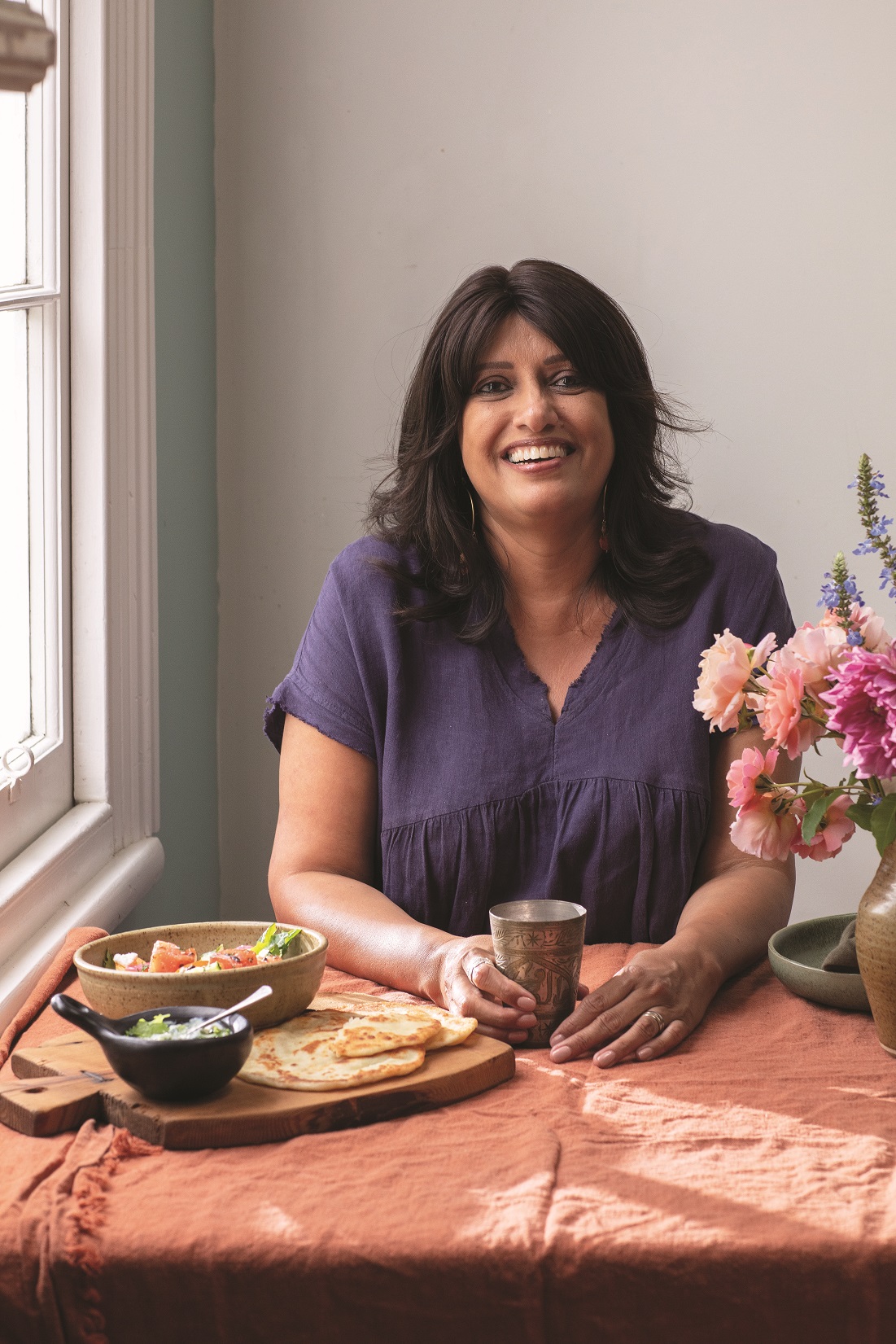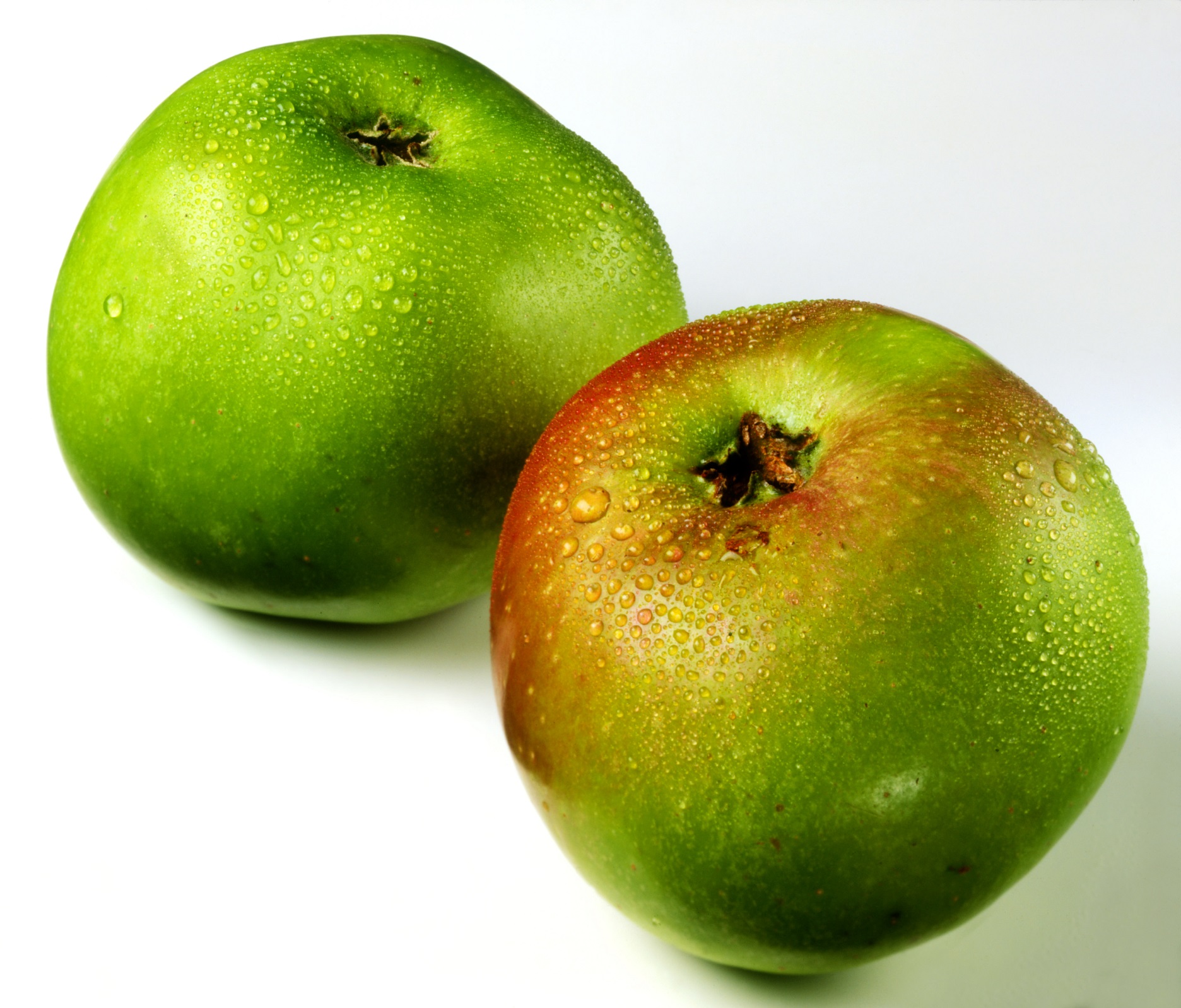
The author of Saffron Swirls and Cardamom Dust has just released The Laden Table, which melds all the cultures that have influenced Ismail-Singer and her family’s lives — Africa, India, France, the Middle East, United Kingdom and New Zealand.
"This book is the culmination of my love of food, cooking and entertaining. I have created the recipes in this book to be as simple as possible, inspired by the spices I grew up with.
"Mine is an immigrant’s cuisine, of sorts, merging old traditions with new ones, creating food that spans generations, geography and ethnicities."
She focuses on seasonal, fresh ingredients full of flavour using key spices that can be shared with friends and family. She has even included a collection of menu ideas for dinner parties.
"Being of Indian heritage, my love of cooking first started at an early age. I remember the fragrant smells of spices cooking, beautifully aromatic, heady, a mixture of hot, salty, sweet and sour, perfectly balanced. Recipes were never written down, but remembered by taking part, helping and learning as you went, developing your tastebuds, which became more attuned with age and experience. And this led to cooking by instinct, which is how I cook now."
Ismail-Singer wears many hats. As well as cooking and creating recipes, she has a "day job" as a nurse and has just retrained to start a career in real estate and hopes to one day to make real estate and food writing her fulltime job.
Her love of cooking came from her upbringing where food was already a big part of her life with the family always celebrating special occasions with plenty of food.
"Religious festivities, like Eid, were always spent with wider family and friends, and there would be meat and vegetarian dishes, my mum’s famous biryani and, of course, lots of amazing sweets and desserts."
In The Laden Table, there are recipes for breakfast and brunch, for summer picnics and dining, vegetables "to inspire you to eat more greens" and festive feasts as well as desserts with her signature spices such as cardamom and star anise.
"Every family — every person — has a story. Where they come from and where they end up is circumstantial. But, along the way, we all need food to sustain us. It nourishes our lives. It makes us who we are and creates memories that link us to our families and friends."
The Book
The Laden Table, by Ashia Ismail-Singer, published by Bateman Books, RRP $59.99
 Lamb biryani with all the layers, crunchy filo rosettes
Lamb biryani with all the layers, crunchy filo rosettes

This is my mum’s recipe (her version is chicken) and it is hands down one of the best biryanis! We all say that, right, about our mother’s cooking? But seriously, nothing takes me back home more than eating this delicious dish with its fragrant layers of saffron rice, fried onions and flavourful curry. It’s a beautiful dish to serve at an occasion or celebration. Traditionally, biryani is cooked in a pot and then sealed with dough to create steam, which is referred to as dum. Mum always just covered the pot with a tight-fitting lid. To really wow your guests, though, use filo roses to create a seal and make the dish look spectacular. I have used this filo inspiration from a dessert I made. It has a very special place in my heart.
Serves 8–10
Ingredients
for the curry
1½ cups oil
5-6 small potatoes, peeled, halved
2 onions, sliced
5cm cinnamon stick
2-3 green cardamom pods
2-3 whole cloves
4-6 whole black peppercorns
1 tsp cumin seeds
3 tsp ground coriander
½ tsp ground turmeric
1 tsp ground cumin
1-2 tsp chilli powder
2 tsp ground paprika
1½ tsp salt
Ground black pepper
2½ cups tomato passata or pureed tomato
2-3 cloves garlic, crushed
1kg lamb (or chicken), cut into bite-sized pieces
1 Tbsp tomato paste
1 Tbsp white vinegar
For the saffron rice
4 cups basmati rice
1 Tbsp oil
1 Tbsp butter or ghee
8 cups just-boiled water
4 tsp salt
Red and yellow food colouring
½ tsp saffron
4 boiled eggs, cut in half lengthways
Handful of chopped fresh coriander
For the filo rosettes
10-12 sheets store-bought filo pastry
150g melted butter
Oil or ghee to drizzle
Persian tea rose petals to decorate (optional)
For serving
Cucumber raita
Tomato & onion kachumber
Method
For the curry: Heat ¾ cup oil in a small frying pan and fry the potatoes until golden, about 10 minutes.
In a large saucepan, heat ½ cup oil and fry the onions until golden. Remove with a slotted spoon and drain on paper towels. Set aside. Add the whole spices to the same oil and fry for 1 minute, then add powdered spices, salt and pepper, passata and garlic, and cook over a low heat for 6-8 minutes. Add the lamb pieces and cook, covered, for a further 10 minutes. Add tomato paste, vinegar and fried potatoes and simmer until sauce clings to the meat, about 10 minutes. If it starts catching on the bottom, add a splash of water. The sauce should be a thick consistency and not too runny. Turn off the heat.
For the rice: Soak the rice in water for 20-30 minutes. Drain then wash the rice until the water runs clear. In a large saucepan, heat the oil and butter, add the rice and stir until it just starts to become translucent, then add just-boiled water and salt. Allow to boil for 1-2 minutes, then turn the heat down to low and simmer, covered, for about 15 minutes until the water has evaporated. The rice should be cooked, fluffy and separated.
Mix 1 cup of the cooked rice with a drop of red and yellow food colouring mixed with a little water. Soak the saffron in 1 Tbsp just-boiled water for a few minutes then stir into the coloured rice and set aside.
Place a layer of curry into a large 2-litre capacity ovenproof pan. Add a layer of cooked white rice to the pan, then a layer of the curry, and carry on until you have 3-4 layers, ending with rice.
Place the boiled eggs on top and then add your saffron rice, fried onions and chopped coriander.
Preheat the oven to 180°C bake.
For the filo rosettes: Unroll the filo pastry and cover with a damp cloth. On a clean work surface, one at a time, place a pastry sheet with the long side towards you and brush with butter. Fold roughly concertina style lengthways and then roll up to form a rosette. Repeat with remaining filo. Place each rosette on top of the biryani until it is fully covered.
Drizzle with a little oil or ghee around the edges so it drips down the sides of the biryani.
Bake for 20–25 minutes or until the filo roses are golden.
Decorate with Persian tea rose petals, if desired. Serve hot with a cucumber raita and tomato and onion kachumber.
Tip: This beautiful dish can also be made vegetarian by replacing the meat with 1kg of mixed mushrooms — portobello, shitake, white or brown button — or other vegetables of your choice.
You can skip the filo pastry. Instead, layer your biryani in a large saucepan with a tight-fitting lid. Put on the stove, drizzle ghee or oil down the sides of the pan and cook on low heat for 15–20 minutes, lid on.
Cucumber raita and tomato, onion kachumber
Raita
Makes 1-2 cups
400g Greek yoghurt
½ cup diced cucumber
1 Tbsp chopped fresh coriander
½ Tbsp chopped fresh mint
Salt and ground black pepper
Sprinkle of chilli powder
Method
Mix all ingredients together in a bowl.
Kambucher
Makes 200-300ml
1 large tomato, diced
1 onion, diced or 1 spring onion, sliced
½ tsp chilli powder
¼ tsp salt
Dash of white vinegar
Method
Mix all ingredients together in a bowl. Serve as an accompaniment to curry and rice dishes.
Best eaten on the day.
 Baklava cheesecake with orange blossom syrup
Baklava cheesecake with orange blossom syrup

Nothing beats the flavours of a gorgeous baklava — think orange, saffron, honey and pistachios. Imagine the perfection of combining those flavours with a creamy baked cheesecake. A Middle Eastern-inspired treat, perfect for a celebration.
Serves 8–10
Ingredients
for the base
250g pistachios
200g mixed nuts (e.g. almonds, walnuts, hazelnuts)
¼ cup sugar
1 tsp ground cinnamon
½ tsp ground cardamom
12 sheets store-bought filo pastry
125g butter, melted
For the filling
450g cream cheese, at room temperature
120g sugar
15g plain flour
3 eggs
75g double cream
For the orange blossom syrup
½ cup honey
½ cup water
½ cup sugar
2 tsp rose water
2 tsp orange blossom water
Pinch of saffron (optional)
Dried rose petals, fresh rose petals and extra pistachios, to garnish
Method
Preheat the oven to 160°C fanbake. Grease a 22cm loose-bottomed cake tin.
For the base: Place the nuts in a food processor and whizz until finely chopped. Transfer to a large bowl, add the sugar and the spices and stir to combine. Place a sheet of filo pastry in the cake tin and brush with melted butter. Cover with one more layer of filo brushed with butter — the sheets will hang over the edge. Sprinkle a layer of spiced nuts over top. Butter 2 more filo sheets and place them on top of the first layer of pastry and nuts. Repeat the process with the remaining pastry and nut mixture, ending with a layer of filo.
For the filling: Using an electric beater or stand mixer, whisk the cream cheese with the sugar until fluffy, about 2 minutes. Add the flour, eggs and double cream and whisk until just combined. Pour on to the prepared filo base. Cut the overhanging filo around the edge of the cake tin.
For the syrup: In a saucepan, combine the honey, water and sugar over a medium–high heat, stirring until the sugar dissolves. Cook until the syrup thickens, then remove from the heat. Add the rose water, orange blossom water and saffron (if using). Stir to combine and set aside.
Bake the cheesecake for 45 minutes, then carefully remove the sides of the cake tin and bake for a further 20–25 minutes until golden. Remove the cheesecake from the oven and pour the syrup over the edges and sides. Allow to cool completely and then serve with dried rose petals, fresh rose petals and pistachios to garnish and a cup of apple tea.
Tip: It’s best to use double cream for the filling. You can find it near the fresh cream in your supermarket.
 Stuffed naan with turmeric apple achaar
Stuffed naan with turmeric apple achaar

The best-ever naan! I make them often as they’re so easy to throw together and no yeast is needed!! You can leave them plain or stuff them. I like to use a little oil to cook them as it gives a lovely glossy finish. Growing up in Malawi, my mum and aunt used to make achaars and pickles (mango, lemon, apple) to store away for the year.
Makes 16-18 naan and 1 300ml jar achaar
Ingredients
for the turmeric apple achaar
2 cooking apples, diced
1 tsp ground turmeric
1 tsp salt
2 Tbsp oil
¼ tsp cumin seeds
¼ tsp fenugreek seeds
¼ tsp nigella seeds
¼ tsp mustard seeds
¼ tsp fennel seeds
1-2 whole cloves
3-4 curry leaves
1 Tbsp grated ginger
1 Tbsp grated garlic
3 Tbsp soft brown sugar or jaggery (if you can get it)
3 Tbsp white vinegar
For the naan
4 cups self-raising flour
1½ tsp salt
2 cups plain unsweetened yoghurt
olive oil for frying
For the filling
1 cup chopped spring onion
1 cup chopped fresh coriander
½ tsp ground coriander
½ tsp ground cumin
1 Tbsp oil

For the achaar: Put the apples in a sieve lined with muslin over a bowl. Add the turmeric and salt and leave overnight.
Heat the oil in a shallow pan over a medium heat and fry the seeds and cloves. Once they start popping, add the curry leaves, ginger and garlic and stir. Add the sugar and vinegar, bring to a boil and then simmer until the vinegar has reduced.
Add the apples and mix to coat. Spoon into sterilised jars.
The achaar should keep in the fridge for 1 week.
For the naan: Mix flour and salt together in a bowl. Pour in the yoghurt and mix until just combined. Divide the dough into 16-18 pieces.
In a separate bowl, mix all the filling ingredients together.
Using floured hands, flatten each piece of dough into a round shape. Place a spoonful of filling in the centre and bring the edges into the middle. Pinch to close, forming a parcel. Set aside until all are filled.
Gently roll out to 12-14cm rounds.
Heat a non-stick frying pan over a medium heat. Add a dash of olive oil to the pan and cook each naan until both sides are golden and pillowy and cooked through — a couple of minutes each side.
Tip: The naan can be stuffed with cheese, cooked mince, any greens, a spice mix or left plain. You can also cook them on a barbecue. You can make the achaar with green mangoes, as we did growing up, but they are harder to source. Jaggery is an unrefined sugar made from sugar cane or palm and can be found in specialty Indian stores.











